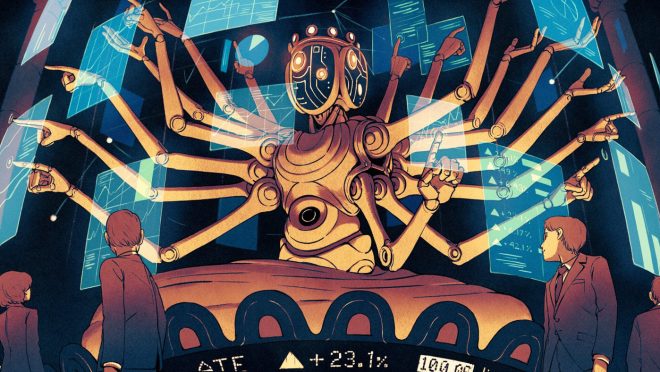AI: Opportunities and challenges for Bangladesh
AI has the power to change and govern the world. We must weigh the positive and negative consequences before employing its use in Bangladesh
AI: Opportunities and challenges for Bangladesh
AI has the power to change and govern the world. We must weigh the positive and negative consequences before employing its use in Bangladesh

Since the introduction of ChatGPT, Artificial Intelligence (AI) has been garnering a fresh new wave of traction. And ever since, both experts and the public began speculating on this new software’s probable implications for the future. AI has been in development for many years and now that it has made its commercial debut, we have to be aware of its presence in Bangladesh.
Let’s take a deep dive into some of the opportunities and challenges AI could present to our nation in the future.
Bangladesh’s agriculture industry is one of the largest in the world due to its fertile land and its rivers. Farmers ensure quality produce by working tireless hours. However, AI could potentially improve the yield of crops and teach farmers how to utilise manpower efficiently.
Bangladesh is prone to heavy flooding and we have seen countless times how crops have diminished. AI could provide us with opportunities to mitigate devastating floods by studying our maps. By doing this, we will be able to plan our flood relief methods and construct perfectly placed channels to carry flood waters away or even prevent flooding in the first place.
Let us not forget about Bangladesh’s garment industry. The industry plays a significant role in driving our economy and AI could be brought into the mix. AI can generate millions of exquisite images of probable garment designs which can be reviewed before production. For instance, AI can present a wide variety of designs once we input the style and material of clothing we wish to produce. There is an enormous pool of fabulous clothing sketches and images. This will inevitably be a game-changer for our nation’s garment sector.
Meanwhile, garment workers’ jobs will not face the risk of being cut short. They will remain the front liners while AI can be used to expand and evolve the sector from behind the scenes.
Another sector AI could potentially assist in is the construction sector. Countless buildings and roads are being constructed every single day in our country. These require massive amounts of human labour. Since AI will not be replacing manual or physical work, it can help with scheduling a labourer’s routine and optimise their time spent on the construction project.
Construction has to be completed as soon as possible and AI can present us with the shortest and easiest route by organising and taking over labour management. In this manner, construction projects will be less hectic with minimal delays while also prioritising labour welfare.
Even with various opportunities, AI can bring forth plenty of challenges to our nation. One prominent challenge is keeping AI from taking full control of our lives. Why do I say this? We will start to rely intensively on AI to direct our lives and make everyday decisions, making us less intelligent than them. This is a serious concern as it can potentially destroy human civilisation.
Many may think I am exaggerating these scenarios but we have to take cautious steps in integrating AI into our society.
Another significant challenge we could encounter is that our job market might become defined by the people who are most physically capable. As AI will do all the brain work, job seekers will be prioritised based on their physical strength as their intellect will be of no use. A graduate’s intellect or meritocracy will be insignificant since they will be judged based on their physical abilities and strength. AI poses a threat to our society as our ingenuity and creativity will never flourish.
AI is a force to be reckoned with and should be handled with care. Looking into the future, AI will soon become widespread. It has the power to change and govern the world. We must weigh the positive and negative consequences before employing its use.
Disclaimer: The views and opinions expressed in this article are those of the author and do not necessarily reflect the opinions and views of The Business Standard.


